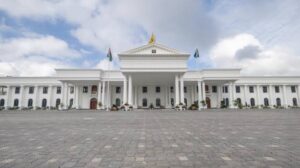Taxpayers are now facing the burden of an additional Ksh.25.3 billion in penalties that have accumulated because the national government has failed to pay its pending bills on time.
Controller of Budget Margaret Nyakang’o has warned that the penalties, added to the original debts, will continue to weigh heavily on the public if the Treasury does not act fast.
The delays in settling these bills have not only increased the country’s financial obligations but also created a ripple effect on businesses and institutions that rely on government contracts.
In her latest full year report for the 2024–2025 financial year, Nyakang’o pointed out that pending bills rose by Ksh.9 billion in just one year, showing how serious the problem has become.
The Ministry of Roads and Transport, under Cabinet Secretary Davis Chirchir, was highlighted as the worst offender, holding the highest share of penalties.
The ministry owes suppliers a total of Ksh.121.8 billion in pending bills, which has now attracted an additional Ksh.21.3 billion in penalties.
This makes it the single largest contributor to the growing financial mess, mainly through agencies like the Kenya Rural Roads Authority (KeRRA), Kenya National Highways Authority (KeNHA), and Kenya Urban Roads Authority (KURA).
The report also shows that other ministries and state departments have not been spared. The Ministry of Energy, through entities such as the National Oil Corporation of Kenya and KenGen, has accumulated Ksh.1 billion in penalties.
The Ministry of Health has also been affected, with Ksh.1.5 billion in penalties recorded under the Kenya Medical Research Institute.
Key health institutions including KEMSA, Kenyatta National Hospital, Moi Teaching and Referral Hospital, and Kenyatta University Teaching and Referral Hospital are struggling with unpaid bills totaling Ksh.54 billion, leaving suppliers and service providers in difficult financial positions.
The Ministry of Water and Sanitation has its share of problems too, with Tanathi Water Works Development Agency owing Ksh.1.2 billion in penalties.
Across the board, these unpaid bills and accrued interest have disrupted operations in many sectors, particularly hitting small and medium-sized enterprises that depend on timely payments from the government.
Many of these businesses are unable to sustain operations, leading to reduced activities, staff layoffs, and in some cases, complete shutdowns.
Nyakang’o has stressed that the situation is unsustainable and must be addressed urgently. She has recommended that the National Treasury move quickly to verify all pending bills and prioritize payment of those that are genuine and eligible.
Without decisive action, the penalties will continue to climb, deepening the financial strain on the taxpayer while suffocating the private sector that is already struggling under tough economic conditions.
The report paints a clear picture that unless reforms are made and bills settled promptly, the cycle of debt and penalties will keep repeating, dragging the economy further into crisis.





















Add Comment